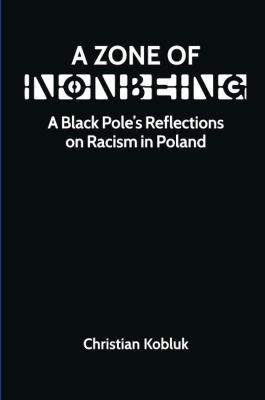A nonfiction book focused on racial struggle in Poland within a global context. The first part of it regards the history of racial relationships between Blacks in general and white Poles. It presents Blacks that were Polish citizens or lived in Poland from the 18th century to the Fall of Nations (1989), such as Katarzyna Rohoczewska and August Agbola O'Browne, and tells the stories of two great Polish anti-racists: General Kosciuszko and poet Cyprian Kamil Norwid. This part also explores the colonial ambitions of Poland and Poles from the end of the 18th century (Beniowski's attempt to colonize Madagascar) to colonial expeditions in the late 1930s. Lastly, it discusses the official anti-racism of the People's Republic of Poland with the actions of its government and views of the white citizens. The second part deals with the thoughts and experiences of the author as a student as well as a teacher, drawing a picture of racism in the Polish education system. Then, it shows the anti-migrant propaganda of politicians in Poland and the European Union and their hypocrisy regarding the refugee crisis in the EU. The main chapter of the 2nd part, and the entire book, tells a story of Maxwell Itoya's murder in May 2010 within a larger context of police brutality towards Blacks all around the world. Finally, the last part presents racist elements of Polish culture (literature and mass culture) with explicit interest in In Dessert and Wilderness by Henryk Sienkiewicz. The next chapter focuses on James Baldwin being the author's literary hero. It points out why Baldwin's writings, especially essays, have been so crucial for a young Black Polish writer and what we still can learn from his books. Two last chapters deal with the yet non-existing movement of Black Poles and attempt to answer the question, What is to be done?

